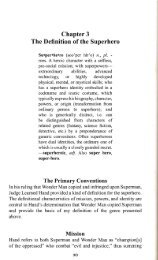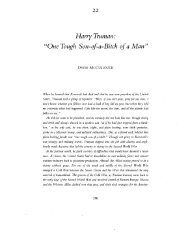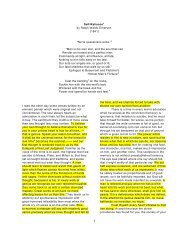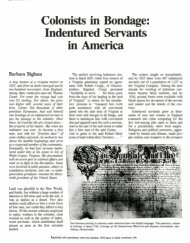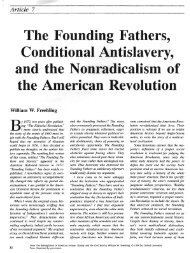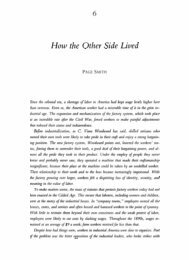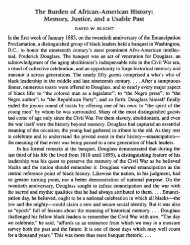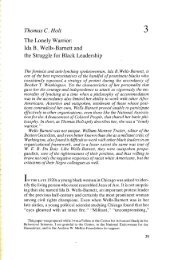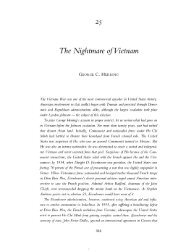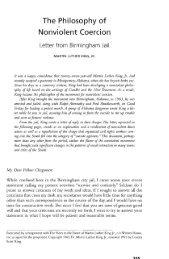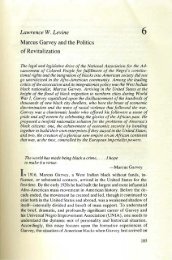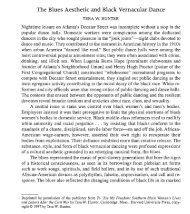Mary - Journeytohistory
Mary - Journeytohistory
Mary - Journeytohistory
You also want an ePaper? Increase the reach of your titles
YUMPU automatically turns print PDFs into web optimized ePapers that Google loves.
Chapter 13Losing the Peace285The Populist, or People's, party was the political agency of these resurgentfarmers. In 1892 the Populists sought to win the black vote in most of theSouthern states and in many instances resorted to desperate means to securethe franchise for blacks in communities where by custom and practice theyhad been barred from voting for more than a decade. The Democrats, alarmedto desperation, made overtures to the Populists, but to no avail. They thenturned to the blacks. In some communities blacks were forced to vote for Democratsby the very people who had dared them to attempt such an exercise ofthe "white man's prerogative" only a few years before. Blacks were hauled totowns in wagons and made to vote repeatedly. In Augusta, Georgia, they wereeven imported from South Carolina to vote for Democrats.Many blacks, however, stood by the Populists, who advocated political ifnot social equality. One of the most zealous advocates of Tom Watson in Georgiawas a young black preacher, H. S. Doyle, who made sixty-three speeches forWatson in the face of numerous threats. Democrats resorted to violence. Ablack Populist in Dalton, Georgia, was murdered in his home, and it is estimatedthat fifteen were killed in Georgia during the state elections of 1892. Riotsalso broke out in Virginia and North Carolina. If black rule meant chaos anddisorder to the Democrats, the mere threat of it was enough for them to resortto violence themselves.In some states there was a successful fusion between the newly organizedPopulists and the remnants of old Republican organizations. In 1894 such acombination seized control of the North Carolina legislature. The Democraticelection machinery was immediately dismantled, and voting was made easierso that more blacks could vote and make their influence felt once more. Blackofficeholding soon became common in the eastern black belt of the state. Theaction of the fusion legislature of 1895 led to the election of 300 black magiStrates.Many counties had black deputy sheriffs. Wilmington had 14 black policeofficers, and New Bern had both black policemen and black aldermen. Oneprominent black, James H. Young, was made chief fertilizer inspector and a directorof the state asylum for the blind; another, John C. Dancy, was appointedcollector for the port of Wilmington.White Conservatives who witnessed the political resurgence of blacks inNorth Carolina, Georgia, and other Southern states deeply resented the blacks'Political exercise of power when they were unable to be control1ed. Asresurgence of blacks returned to prominence, either as electors or as an e1ecblack~and white tion issue, sentiment against their participation in politics grew.resentment of it The Democrats, failing to control the black vote, moaned dismallyabout the return of black Republicanism. Even when Democrats controlledthem, they said that blacks made for corruption in politics. Although thePopulists on occasion could have had the black vote, apparently they preferrednot to seek it because of the dangers involved. The election laws, as they stood,might actually be turned against poor, ignorant whites if the Democrats becamevindictive and sought to disfranchise the Populists as well as their black allies. Itwas much better, therefore, to have clear-cut constitutional disfranchisement of



